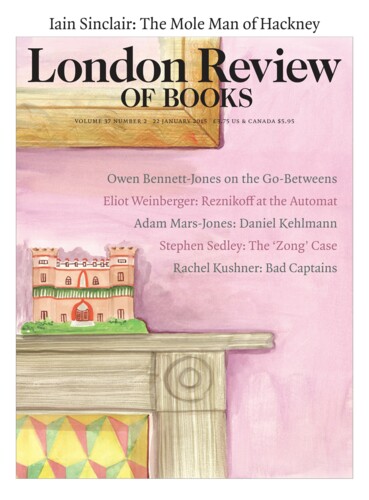Poet at the Automat: Charles Reznikoff
Eliot Weinberger, 22 January 2015
Charles Reznikoff may be the most elusive poet in American poetry and his book-length Testimony the most elusive long poem of modernism. He is remembered as a kind of New York saint, an urban Emily Dickinson: the unknown poet, walking the city streets, writing intense, seemingly matter-of-fact lyrics about things he saw and heard. And then, in the last decades of his life, devoting himself...



